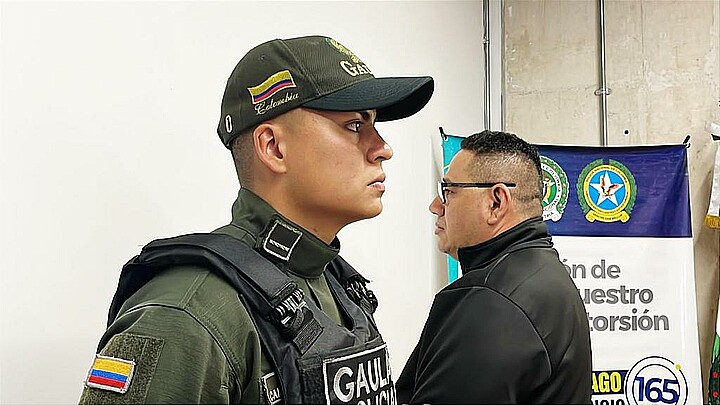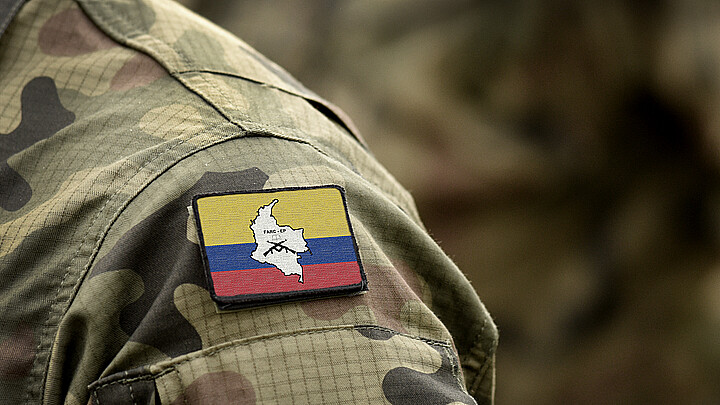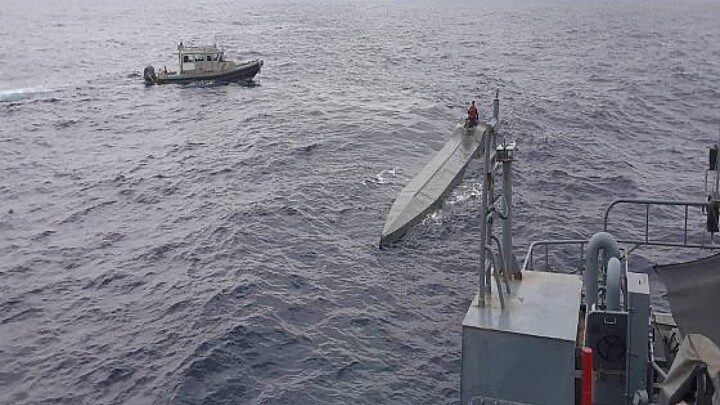Crime
Brazilian gang members who exploited gold illegally in Colombia sentenced to house arrest
Despite committing criminal acts against the environment, the suspects now live in a luxurious home in Antioquia, according to authorities.
November 10, 2021 3:28pm
Updated: November 11, 2021 12:39pm
Colombian authorities have shut down a Brazilian criminal network that was involved in illegal gold mining. Upon being captured, the 14 suspects -- who are linked to "Otoniel", the recently jailed head of the Gulf Clan -- were sentenced to house arrest by a judge.
The suspects were reportedly financed from Brazil by a couple who were part of the 'Family of the North' criminal gang. The couple arrived in Colombia a year ago and made millions in profits from their illegal activity, according to Colombian intelligence.
"Each kilo of gold was valued at between 180 and 200 million Colombian pesos. For the gold extraction, they used significant amounts of mercury. Six kilos of mercury were found there in flagrancy, which could contaminate three billion liters of water, the same amount needed to fill 890 Olympic swimming pools," said Carabineros Police director, General Alejandro Barrera.
In a somewhat surprising development, due to the environmental nature of their criminal acts, the couple -- and the 14 suspects -- now live in a luxurious house in Antioquia as a result of their house arrest, according to authorities.
First, the couple contacted 'Otoniel' to seek protection and then to help some of his men in the illicit gold extraction. They operated at night, but using drones, the authorities were able to identify the criminals’ location. They found them near the Nechí River, in the Antioquian Bajo Cauca region.
"Unfortunately, the Nechí River is one of the most contaminated by mercury in the world," explained Colombian authorities.
The Environment Ministry and Antioquia Governor's Office signed an agreement in early September to restore areas degraded by illegal activities and other ecological crimes in the Bajo Cauca region.
It will be financed with the Colombian Peace Fund and seeks to reactivate the economy in local municipalities, which have suffered as a result of ecological crimes and illegal activities. Last year, illegal mineral extraction caused environmental damages worth more than 15 billion pesos.
Other areas in Colombia are also threatened by illegal mining. At the end of October, Valle del Cauca Governor's Office issued a warning regarding the ecological damage caused by illegal mining in Farallones Natural Park.
"The proposal was made in the Environmental Security Council to articulate ecologic authority, Army, Police, National Parks, and the local government, to lower residues, manage and dispose them according to the regulations and be able to recover this area," noted Nasly Vidales, Valle del Cauca’s secretary of Environment and Sustainable Development. Vidales added that the investment will reach 72 million pesos.










